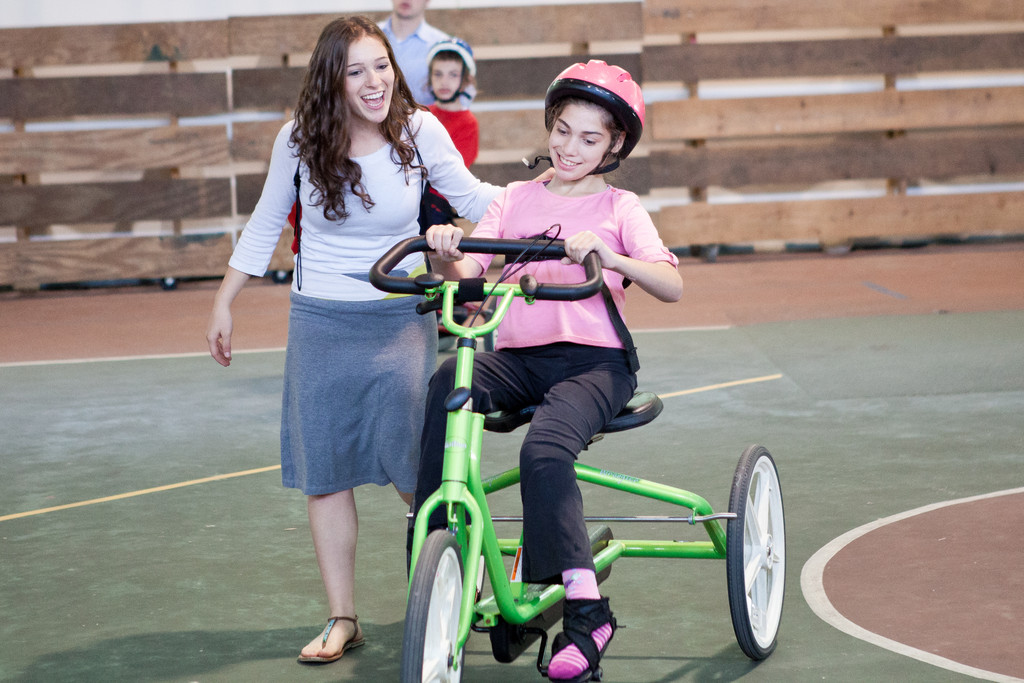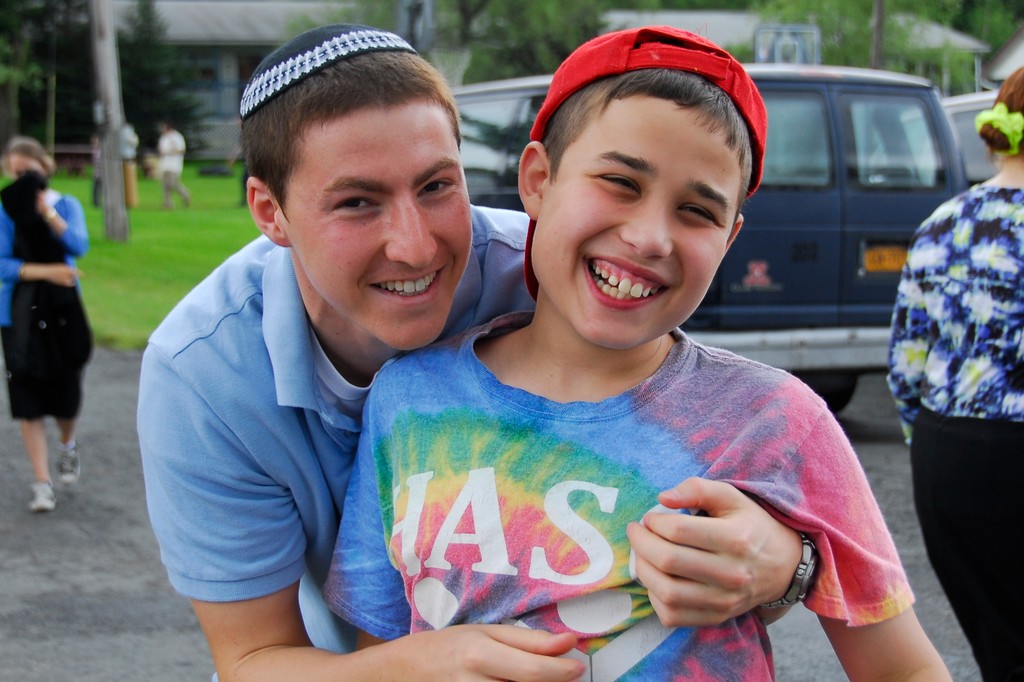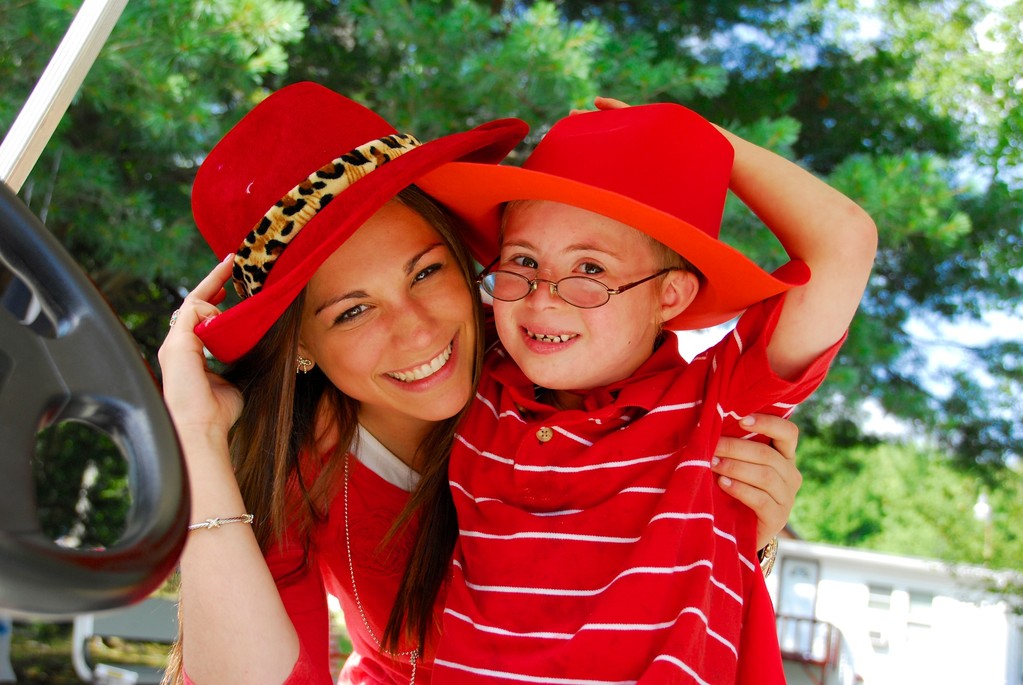Camp HASC: Where disabled children, mentors grow
Camp HASC is a place where remarkable milestones are achieved each summer.
Last summer alone, many campers accomplished great tasks and learned important skills which will permanently enrich their lives.
One camper learned to independently use a fork and spoon, thanks to intensive feeding therapy he received during meals in the dining room, forever reducing his dependence on others to feed him during meals. Another took his very first steps, thanks to hours of dedicated work by therapists, teachers and counselors. Still another had his Bar Mitzvah in camp, and to the great surprise of his parents and family, showed that he was capable of learning Birchos HaTorah (the blessings on the Torah), wearing Tefillin, and performing Pesicha (opening the Ark) in shul — all of which his counselors decided to teach him before his special day.
These are but a few of many milestones achieved by the special campers in Camp HASC last summer, and all of their achievements are an endless source of pride to the campers themselves, their parents, families, communities and camp staff.
But there are so many other milestones achieved each summer when hundreds of camper parents find almost two months to dedicate to their other children, their spouses and their own growth, some for the first time. Raising a child or caring for a sibling with severe intellectual and physical disabilities is a responsibility that takes remarkable dedication and intense commitment, 24 hours a day, seven days a week. Knowing that their child or sibling is in caring hands for seven full weeks, allows parents and families to focus on recharging, in a way that often simply isn’t possible during the year.
Each summer in Camp HASC, campers, no matter how severe their challenges, get to go away for a full summer, just like their brothers and sisters and peers. Their intellectual and physical disabilities become irrelevant in a camp program designed just for them, where they are the stars of the show and the center of attention, where they can swim, ride bikes, cook, create art, play and enjoy music, care for animals, learn Torah, daven, bake challah. They enjoy their summer just like any other typical child, teen or adult.

 63.0°,
Partly Cloudy with Haze
63.0°,
Partly Cloudy with Haze 









